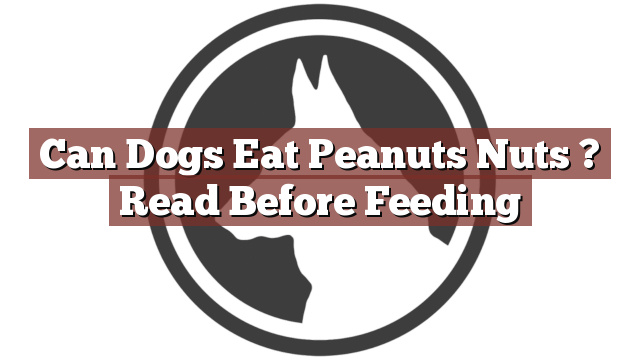Understanding Your Dog’s Dietary Needs
As responsible pet owners, it is crucial to understand our dogs’ dietary needs to ensure their overall health and well-being. While dogs are omnivores and can consume a wide variety of foods, not all human foods are safe for them. It is essential to be aware of the potential risks associated with feeding certain foods to our furry friends.
Can Dogs Eat Peanuts Nuts? Read Before Feeding
Can dogs eat peanuts? This is a question that often arises among dog owners who may be tempted to share their favorite snack with their four-legged companions. The answer is yes, in most cases, dogs can eat peanuts. Peanuts are not toxic to dogs; however, there are certain considerations to keep in mind before adding this nut to their diet.
Firstly, it is important to note that dogs should only consume plain, unsalted peanuts. Salted peanuts, especially those seasoned with garlic, onion, or other harmful ingredients, can be harmful to dogs. Secondly, peanuts should be given in moderation as a treat or an occasional addition to their regular diet. Excessive consumption of peanuts can lead to weight gain and other health issues.
Pros and Cons of Feeding Peanuts to Dogs
Feeding peanuts to dogs can have both benefits and drawbacks. On the positive side, peanuts are a good source of healthy fats, protein, and vitamins, such as vitamin E and B vitamins. These nutrients can contribute to a dog’s overall health and support their immune system. Peanuts also contain antioxidants that help fight inflammation and promote a healthy coat and skin.
However, it is essential to be aware of the potential drawbacks of feeding peanuts to dogs. Peanuts are high in fat and calories, which can lead to weight gain if consumed excessively. Additionally, some dogs may be allergic to peanuts, and their consumption can trigger allergic reactions, including itching, vomiting, or diarrhea. If you are unsure whether your dog is allergic to peanuts, it is recommended to consult a veterinarian before introducing peanuts into their diet.
In Conclusion: Proceed with Caution and Consult a Veterinarian
While peanuts are generally safe for dogs, it is important to proceed with caution and consider the individual needs and health conditions of your furry friend. Before adding peanuts to your dog’s diet, make sure they are plain and unsalted. Introduce them gradually and monitor your dog for any signs of allergies or adverse reactions.
If you have any concerns or questions about feeding peanuts or any other human foods to your dog, it is always best to consult a veterinarian. They can provide personalized advice based on your dog’s specific needs and help you make informed decisions regarding their diet. Remember, a balanced and nutritious diet is key to keeping your dog happy and healthy for years to come.
Thank you for taking the time to read through our exploration of [page_title]. As every dog lover knows, our furry friends have unique dietary needs and responses, often varying from one canine to another. This is why it's paramount to approach any changes in their diet with caution and knowledge.
Before introducing any new treats or making alterations to your dog's diet based on our insights, it's crucial to consult with a veterinarian about [page_title]. Their expertise ensures that the choices you make are well-suited to your particular pet's health and well-being.
Even seemingly harmless foods can sometimes lead to allergic reactions or digestive issues, which is why monitoring your dog after introducing any new food item is essential.
The content provided here on [page_title] is crafted with care, thorough research, and a genuine love for dogs. Nevertheless, it serves as a general guideline and should not be considered a substitute for professional veterinary advice.
Always prioritize the expert insights of your veterinarian, and remember that the health and happiness of your furry companion come first.
May your journey with your pet continue to be filled with joy, love, and safe culinary adventures. Happy reading, and even happier snacking for your canine friend!

